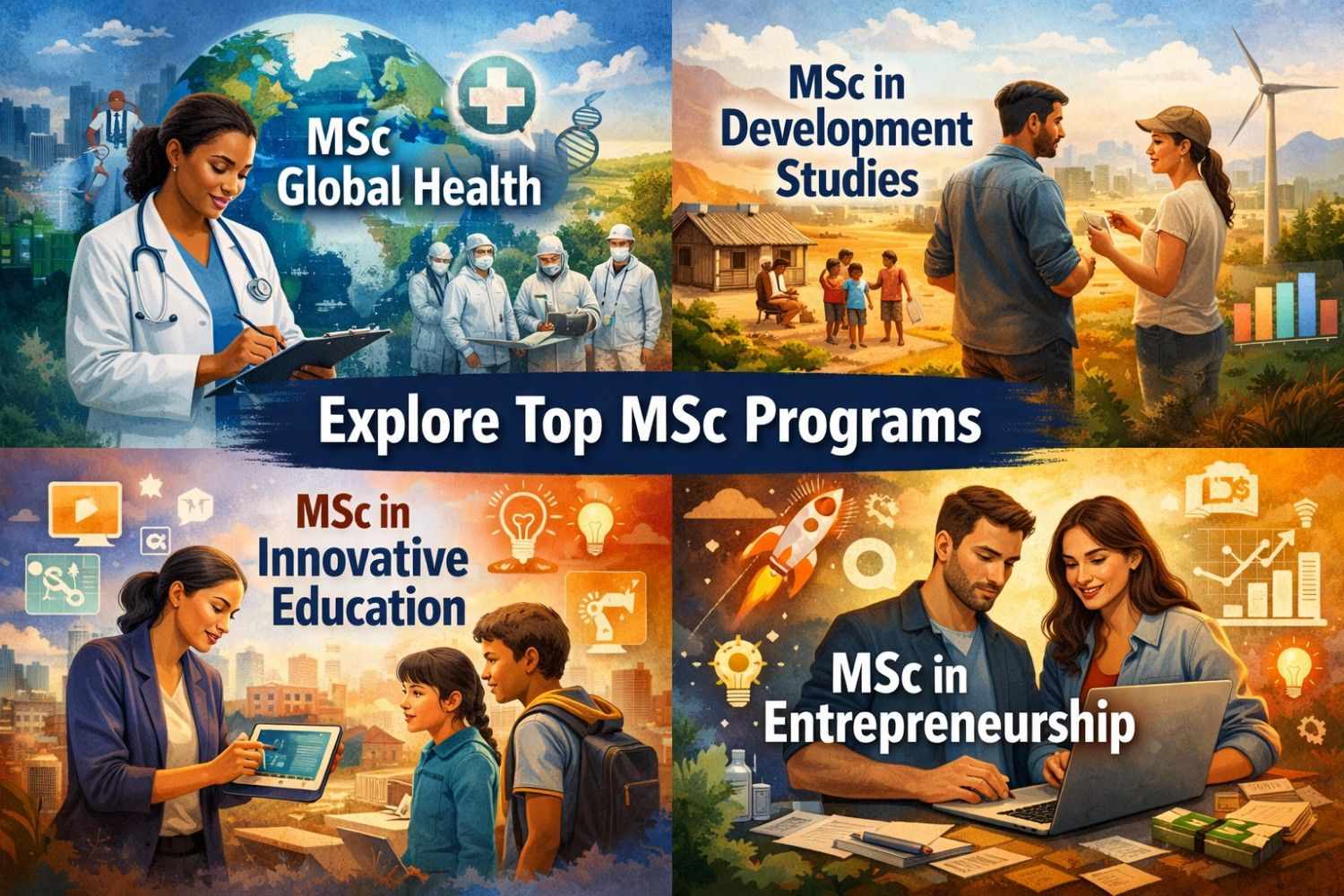
In the current intense and rapid business landscape, obtaining an MBA (Master of Business Administration) stands out as one of the premier methods to advance a career path in leadership, management, and launching new ventures. An MBA represents more than just an academic credential; it is a transformative experience that furnishes individuals with the proficiencies, assurance, and worldwide viewpoint necessary for steering enterprises effectively.
Whether you are a recent graduate seeking to improve your job prospects or an established professional aiming for higher corporate roles, undertaking an MBA can unlock new avenues. Given the rising need for adaptable business experts across various sectors, MBA curricula are continually updated, providing distinct concentrations to address contemporary business hurdles.
What Makes an MBA Profoundly Beneficial
The merit of an MBA stems from its comprehensive, cross-disciplinary approach. The curriculum integrates strategic foresight, financial understanding, marketing perception, and leadership cultivation into a cohesive structure. It readies graduates not only to comprehend organizational mechanics but also to guide them adeptly during periods of flux.
The MBA experience extends beyond traditional lectures. Participants engage with case studies, simulations, apprenticeships, and live assignments that teach the transposition of academic knowledge to actual business predicaments. Furthermore, the international exposure and collaborative setting amongst peers foster cultural awareness, bargaining prowess, and teamwork attributes indispensable for leadership in any field.
MBA Program Length and Design
The majority of MBA programs span two years, structured across four terms. Some institutions also present accelerated one-year options, primarily tailored for seasoned workers. The course structure generally covers foundational business subjects in the initial year, followed by advanced specialization and capstone projects in the subsequent year.
In the introductory phase, students are introduced to core disciplines like accounting principles, marketing fundamentals, economics, and organizational conduct. Later terms involve deeper exploration of specific areas such as global commerce, personnel administration, or finance.
Entry Requirements and Acceptance Protocol
To qualify for an MBA, applicants generally need a bachelor’s degree from an accredited institution, typically with a minimum score of 50 percent overall. Many schools mandate standardized entrance examinations such as CAT, MAT, GMAT, or their own aptitude tests to gauge quantitative and analytical capabilities.
Beyond test scores, personal interviews and group discussions are frequently part of the screening timeline, allowing institutions to assess communication aptitude, leadership potential, and market insight. Experienced professionals may receive added consideration for Executive MBA tracks.
Key Subjects within MBA Curricula
MBA courses are formulated to build a robust base in management tenets while allowing students to concentrate on preferred domains. Among the primary course components are:
- Management Fundamentals
- Financial Record Keeping
- Business Economics
- Marketing Strategy
- Personnel Administration
- Strategic Oversight
- Production and Distribution Chain Management
- Business Interaction
- Venture Creation
- Corporate Conduct and Integrity
These modules ensure graduates attain a holistic grasp of both the internal and external elements impacting commercial success.
Specialized Concentrations Available in MBA
A significant advantage of the MBA is the array of elective concentrations it provides. Students can customize their education to align precisely with their career ambitions and industry interests. Some frequently sought-after MBA specializations include:
- MBA in Finance – Concentrates on fiscal road mapping, investment appraisals, and corporate treasury matters.
- MBA in Marketing – Focuses on consumer inclinations, promotional activities, and brand positioning.
- MBA in Human Resource Management – Addresses employee relations, talent recruitment, and organizational evolution.
- MBA in International Business – Prepares individuals to manage cross-border transactions and global enterprises.
- MBA in Operations Management – Centers on logistics, manufacturing effectiveness, and quality assurance.
- MBA in Information Technology – Merges business administration with IT governance and digital transition.
- MBA in Healthcare Management – Targets professionals working in medical facilities, pharmaceutical firms, and health systems.
- MBA in Entrepreneurship – Designed for those planning to launch and oversee their own enterprises.
These concentrations facilitate focused study in areas that match individual career trajectories and market demands.
Remote Learning and Executive MBA Alternatives
With the expansion of digital education, numerous universities now offer online MBA programs suitable for employed individuals wishing to advance their studies without career interruption. These adaptable formats feature live sessions, recorded lectures, and virtual case scenarios mirroring the traditional academic setting.
Executive MBA (EMBA) tracks, conversely, are crafted for established middle managers or senior personnel seeking to refine their strategic outlook and executive skills while remaining in full-time employment. Both routes carry equal employer recognition and afford networking chances with contemporaries globally.
Post-MBA Career Prospects
Acquiring a Master of Business Administration unlocks numerous professional avenues across diverse sectors. Graduates are prepared to assume supervisory and leadership appointments in both the public and private spheres. Prominent career positions include:
- Business Analyst
- Marketing Director
- Financial Controller
- HR Lead
- Operations Supervisor
- Product Lead
- Business Growth Manager
- Project Supervisor
- Supply Chain Specialist
- Management Advisor
Beyond typical corporate positions, many MBA alumni branch out to initiate their own ventures or join emerging companies as strategic associates. The competencies gained throughout the program—such as critical evaluation, risk appraisal, and business structuring—are vital for entrepreneurial success.
Earning Potential and Worldwide Relevance
MBA graduates frequently rank among the highest compensated professionals across industries. Standard starting remuneration in India often falls between ₹6 to ₹10 lakhs annually, with elite institutions sometimes offering packages surpassing ₹20 lakhs. Internationally, holders of MBAs frequently find lucrative roles in consulting, finance, and technology sectors, where compensation is notably higher.
The global requirement for proficient managers is widespread. Organizations throughout Asia, Europe, and North America actively seek MBA talent capable of fueling expansion, directing teams, and adapting to shifting markets. As business operations become increasingly worldwide, the career outlook for those with an MBA remains bright and ever-expanding.
Abilities Cultivated Via an MBA
Beyond concrete business expertise, an MBA fosters crucial interpersonal attributes essential for leadership. Students acquire the ability to:
- Employ strategic thought and make choices supported by evidence
- Handle time and resources optimally
- Interact and bargain persuasively
- Examine and interpret fiscal data
- Lead varied work groups with assurance
- Foster innovation and adjust to market fluctuations
These proficiencies render MBA graduates highly adaptable and competent to succeed in multifarious business environments.
Rationale for Pursuing an MBA
Opting for an MBA is a defining decision for anyone driven by leadership aspirations, innovation, and global commerce. It furnishes individuals with the instruments to navigate complexities, oversee intricate projects, and motivate teams toward favorable outcomes.
The Master of Business Administration curriculum emphasizes not merely theoretical knowledge but the cultivation of a mindset that embraces adaptation, steadfastness, and principled judgment. In today’s interconnected world, marked by intense rivalry and relentless innovation, MBA graduates are positioned to spearhead change.
Concluding Thoughts
An MBA remains one of the most esteemed and potent credentials for forging a flourishing trajectory in business and administration. It marries analytical rigor with creative problem-solving abilities, granting graduates the capacity to lead with both assurance and foresight.
Whether your objective is advancement within your current firm, a shift into a new sector, or establishing your own enterprise, an MBA provides the necessary foundation to convert aspirations into accomplishments. With focused effort, specialization, and resolve, this qualification can serve as your route to global authority and sustained professional evolution.










Write a comment ...